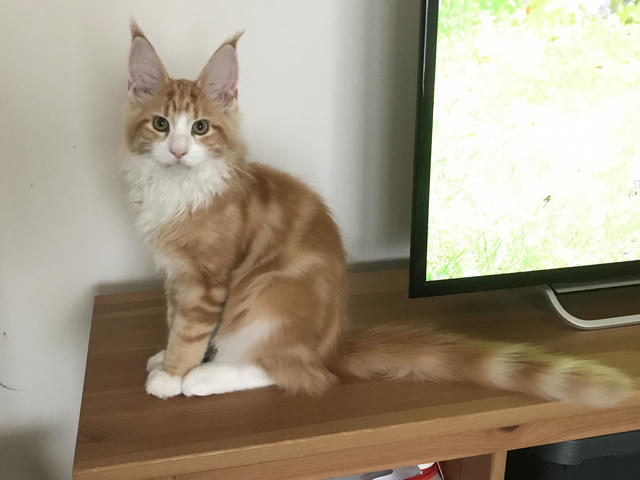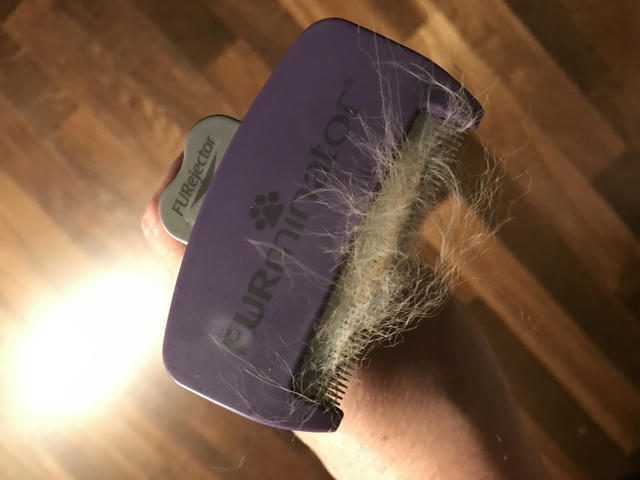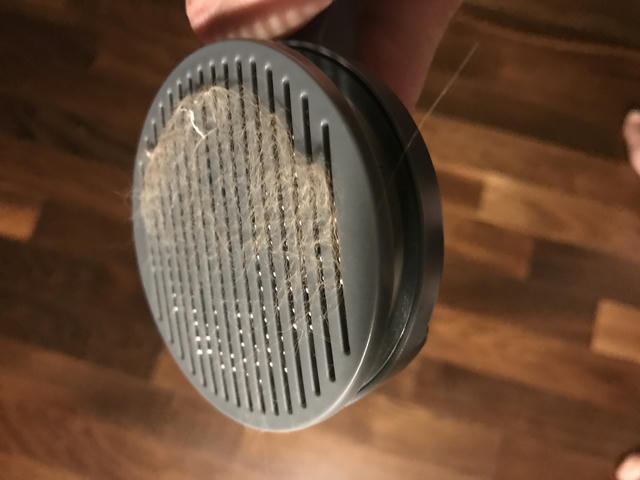MY CAT LEAVES HAIR ALL-AROUND MY HOME

There are several reasons why a cat’s hair is falling all around your home and there are for sure different solutions for that.
This loss of hair is known in cats as alopecia.
First of all you must understand what is causing this. Here is a list with the most common reasons:
1. Seasonal fur change
Most felines, especially medium or long-haired cats, have a high hair loss season. It happens usually during autumn and spring but there are also situations in which due to genetic reasons, the fur can fall all year.
Most Maine Coons lose their hair mostly during Spring or Autumn, but if the mother or father had a genetic predisposition to lose his or her fur, then there are some probabilities that their descendants have the same characteristic.
What can I do? To control this, you must brush your cat’s fur regularly. The brushing frequency will depend if your pet is short or long-haired. For short haired cats a once or twice a week brushing is ok. For medium or long-haired cats do it preferably every day or every two days.
We do it in a daily basis with our Maine Coon. Not only it works (I rarely find his hairs on the floor or in the furniture - the vacuum cleaner proves it) as it also helps to keep him groomed, free of knots (which favours also his digestive system and well being) and he looks more beautiful (his fur is combed, clean and looks more fluffy).
We groom our cat with these brushes (they are two just because we wanted to try how they were. One is enough). Furminator is definitely more effective but Pakeway is also good.


2. Your cat may have parasites
Another possibility is that your cat has parasites like fleas, mites or ticks. If you see your four paws pal itching too much, scratching himself and as a consequence, there is hair falling, he (or she) may need some help. Not only the fleas and ticks give an itching sensation as they can cause allergies which can lead to considerable hair losses.
What can I do? There are products in the market that help to prevent this kind of situation (for example anti-parasite collars or drops you can put in the fur). If it is too much, then ask your vet for a specific medication.
3. A change in the diet
Sometimes a simple change in the diet of your cat can cause hair loss. Cats are very sensitive animals . A change in the food trade/type or a lack of nutrients can cause changes in the fur too.
What can I do? Avoid drastic changes in your animal food. Do it gradually. For example, if you are changing the dry food, in the first meal put a small amount of the new one mixed with the old. In the meal after mix a little bit more and so on, until your four legs pal gets used to it and makes the change in a pace that won't bring him any concern.
4. Stress and anxiety
Have a new home, changes in the furniture or the routine, the arrival of a new pet, spending much time alone, having closed doors unreachable at home, can be reasons which lead a cat to a state of stress or anxiety. This anxiety can be translated in several behaviors or physical manifestations as hair loss, too much lick and stretch.
What can I do? Unless it is really necessary try no to make big changes in your cat’s routine. Cats are fond of “the same”, it brings them confidence and a sensation of control and safety. Any change can be a challenge and trigger undesirable behaviors or hair loss.
If all of the above does not work, go with your pet to a vet. It may be a health problem as overactive thyroid, diabetes, cancer, kidney problems or others.
